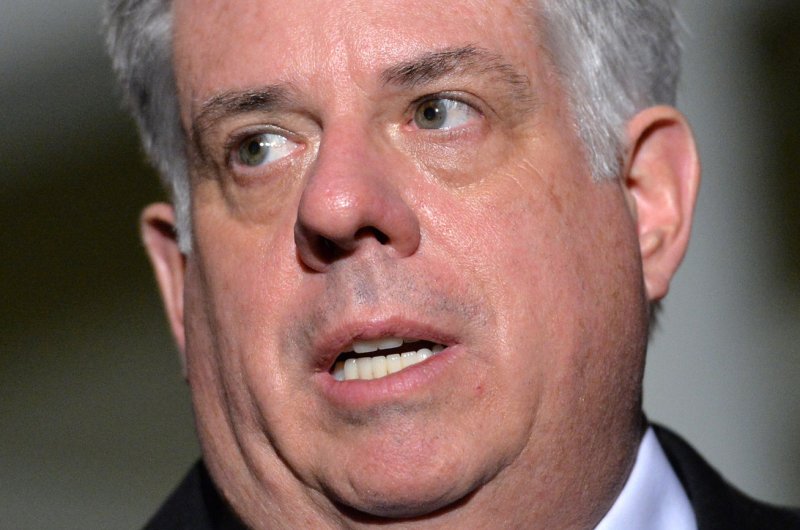Maryland Gov. Larry Hogan, a Republican, pledged declared a state of emergency Monday to battle the state's problem with heroin and prescription pill abuse. File Photo by Kevin Dietsch/UPI |
License Photo
March 1 (UPI) -- Maryland Gov. Larry Hogan declared a state of emergency Wednesday because of a heroin and opioid "crisis," and pledged an additional $50 million in state funds over five years to deal with the epidemic.
"We need to treat this crisis the exact same way we treat any other state emergency," Hogan announced at a news conference at the Maryland Emergency Management Agency in Reisterstown. "This is actually about taking an all-hands-on-deck approach so that together we can save the lives of thousands of Marylanders."
The state of emergency will allow local emergency agencies to cut through "red tape" with more flexibility for prevention, treatment and enforcement efforts.
"The fact of the matter is that people all across Maryland, and the nation for that matter, are looking for answers when it comes to this heroin and opioid epidemic," Lt. Gov. Boyd Rutherford, who heads the governor's Heroin and Opioid Emergency Task Force, said at the news conference.
An additional $10 million was allocated for this year to fight the problem.
The state had budgeted $122 million this year for the Department of Health and Mental Hygiene to treat substance use problems in the next fiscal year. Overall, the state has earmarked $538 million for the department and Medicaid, but if the Affordable Care Act is repealed, the state could lose $215 million a year in Medicaid funding.
Final numbers for 2016 are not yet available but officials estimate about 2,000 people died from heroin and other opiate overdoses in the state -- double the number from 2015.
Dealers have been blending fentanyl, a cheap and powerful synthetic opioid, into regular heroin.
In January, Hogan announced plans to deal with the overdose deaths. Legislation would limit how many opiate painkillers doctors could prescribe to patients on an initial pain consultation and another bill proposes stiff penalties on drug dealers. Hogan also signed an executive order to create a command center to coordinate efforts between agencies.
"It became clear that in order to expedite the mobilization of our statewide response and to build on momentum already underway, we needed greater flexibility to engage our local partners and to be able to activate emergency teams in jurisdictions across the state," the governor said.
Also Wednesday, Hogan also announced he had appointed Clay Stamp, a veteran emergency management official, to lead the state's efforts to combat the problem.
The Democratic Party questioned why the governor was too slow declaring a state of emergency despite a 2014 campaign pledge.
"It took two years and 2,600 deaths for Governor Larry Hogan to finally follow through on what he promised to do on day one," spokesperson Bryan Lesswing said in a statement.















